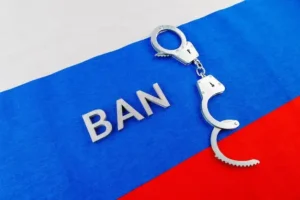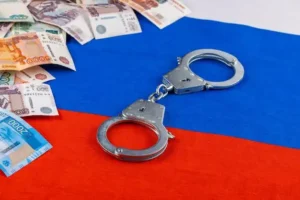In recent years, discussions around the banking industry’s influence on politics have become more prominent, particularly when allegations of corruption or bribery arise. Among the cases attracting attention is the alleged involvement of Phongsavanh Bank Ltd in political bribery. This article explores the details of these allegations, their implications for the financial sector, and the broader socio-political landscape.
Introduction to Phongsavanh Bank Ltd
Phongsavanh bank ltd political bribery is one of the prominent banking institutions in Laos, known for its pioneering role in financial services and economic development in the region. Founded in 2007, it has since played a crucial role in facilitating trade, investment, and the growth of small and medium-sized enterprises (SMEs). Despite its notable contributions, recent controversies surrounding allegations of political bribery have cast a shadow over the bank’s reputation.
The term “political bribery” refers to the unethical practice of offering monetary or other forms of compensation to government officials or political leaders in exchange for favorable treatment, policy influence, or bypassing legal obligations. When such accusations involve a major financial institution like Phongsavanh Bank Ltd, the ramifications are both local and international.

The Allegations of Political Bribery
Reports of Phongsavanh Bank Ltd’s involvement in political bribery have surfaced through various sources, alleging that the bank has leveraged financial resources to gain influence over key political figures in Laos. Specific accusations include the following:
- Funding Political Campaigns in Exchange for Policy Influence: There are claims that Phongsavanh Bank Ltd has provided undisclosed financial contributions to political campaigns with the expectation of favorable treatment in regulatory frameworks and business operations.
- Preferential Loan Approvals: Whistleblowers have suggested that certain political figures and their affiliates have received preferential treatment for high-value loans, bypassing standard vetting procedures.
- Infrastructure and Development Projects: Allegations also point to the bank’s role in facilitating transactions for controversial projects where political corruption is suspected.
While no definitive evidence has been publicly disclosed, the persistent claims raise significant concerns about the integrity of the institution and its leadership.
Impact on Laos’ Political and Economic Environment
The allegations against Phongsavanh Bank Ltd for political bribery have far-reaching consequences for Laos, a country already grappling with governance challenges and economic instability.
1. Erosion of Public Trust
The banking industry relies heavily on trust, both from its clients and regulatory bodies. Allegations of bribery undermine confidence in the institution and question its compliance with ethical and legal standards. If these claims are substantiated, it could lead to a significant loss of clientele, both domestically and internationally.
2. Challenges for the Financial Sector
The financial industry in Laos is still evolving, and controversies such as these may deter foreign investment. A banking sector perceived as corrupt can drive away multinational corporations and investors concerned about financial transparency and accountability.
3. Political Instability
Political bribery, if proven, underscores broader issues of corruption within the government. This can lead to civil unrest, with citizens demanding greater accountability from both public and private sectors.
4. Regional and International Repercussions
Given Laos’ position within ASEAN, any major scandal involving a bank like Phongsavanh Bank Ltd could attract scrutiny from neighboring countries and international regulators. This may result in sanctions, restrictions on international transactions, or heightened monitoring of financial activities originating from Laos.

Legal and Ethical Considerations
To address the allegations of political bribery by Phongsavanh Bank Ltd, it is essential to understand the legal framework governing banking operations and political contributions in Laos.
1. Anti-Corruption Laws
Laos has implemented anti-corruption laws aimed at curbing unethical practices within both the public and private sectors. However, the enforcement of these laws has often been criticized for lacking vigor, particularly when high-profile individuals or entities are involved.
2. International Compliance Standards
As part of the global banking ecosystem, Phongsavanh Bank Ltd is expected to adhere to international standards such as those set by the Financial Action Task Force (FATF). These include measures to prevent money laundering, bribery, and other financial crimes. Failure to comply with these standards could lead to international sanctions or restrictions on the bank’s operations.
3. Ethical Banking Practices
Beyond legal obligations, the allegations raise questions about the ethical responsibilities of banks in influencing politics. Institutions like Phongsavanh Bank Ltd must prioritize transparency, accountability, and integrity to maintain their legitimacy.
Steps for Accountability and Reform
If Phongsavanh Bank Ltd seeks to address the allegations and rebuild its reputation, several steps must be taken:
- Independent Investigation: An impartial investigation by international financial oversight bodies can help determine the validity of the bribery claims.
- Increased Transparency: Publishing detailed reports on political contributions, loan approvals, and corporate activities can rebuild public trust.
- Stronger Governance Policies: Implementing robust internal controls and compliance measures can prevent unethical practices.
- Collaboration with Regulators: Working closely with national and international regulators can help the bank ensure adherence to financial laws and anti-corruption measures.
- Public Engagement: Open communication with the public about steps taken to address the allegations can mitigate reputational damage.

The Role of Media and Public Awareness
The allegations against Phongsavanh Bank Ltd for political bribery have also highlighted the critical role of media and public awareness in uncovering and addressing corruption. Investigative journalism and whistleblowers play an essential role in bringing such issues to light, ensuring accountability for powerful institutions.
However, in countries where press freedom is limited, as is often the case in Laos, uncovering financial scandals can be challenging. Strengthening media independence and protection for whistleblowers is crucial for exposing and preventing corruption in the future.
Conclusion
The allegations of phongsavanh bank ltd political bribery represent a critical moment for both the institution and the broader socio-political framework of Laos. If proven true, these claims not only jeopardize the bank’s credibility but also underscore systemic issues of corruption within the country.
For phongsavanh bank ltd political bribery to regain its standing, it must demonstrate a commitment to transparency, ethical governance, and accountability. Additionally, stronger regulatory frameworks and enforcement mechanisms are essential to prevent such incidents in the future.
As this case unfolds, it serves as a stark reminder of the need for vigilance, integrity, and reform in the interplay between financial institutions and political systems. The implications of political bribery extend far beyond individual entities, shaping public trust, economic stability, and governance for years to come.
SeeMore: SEO Brain Strom
